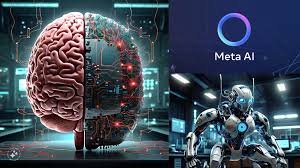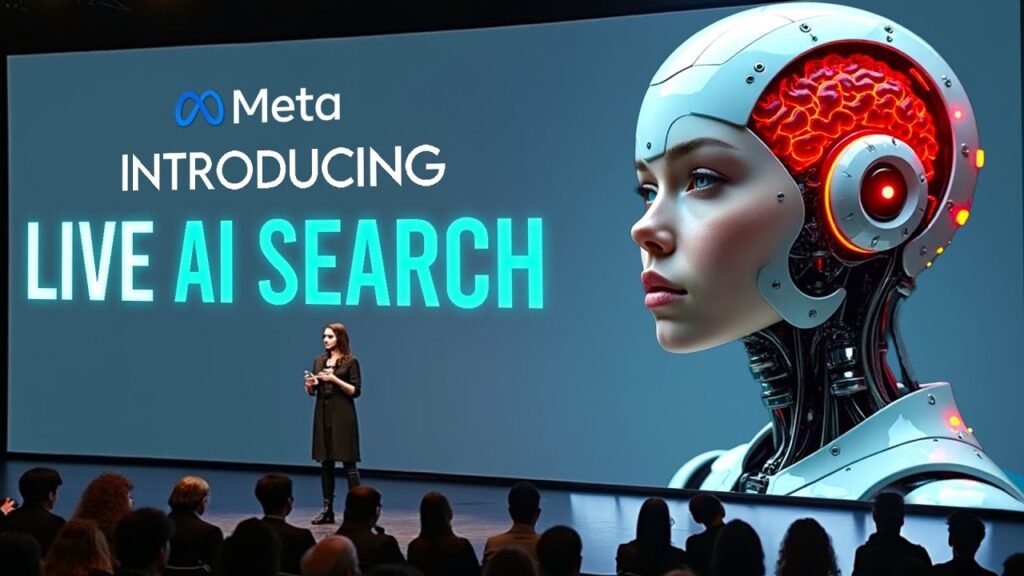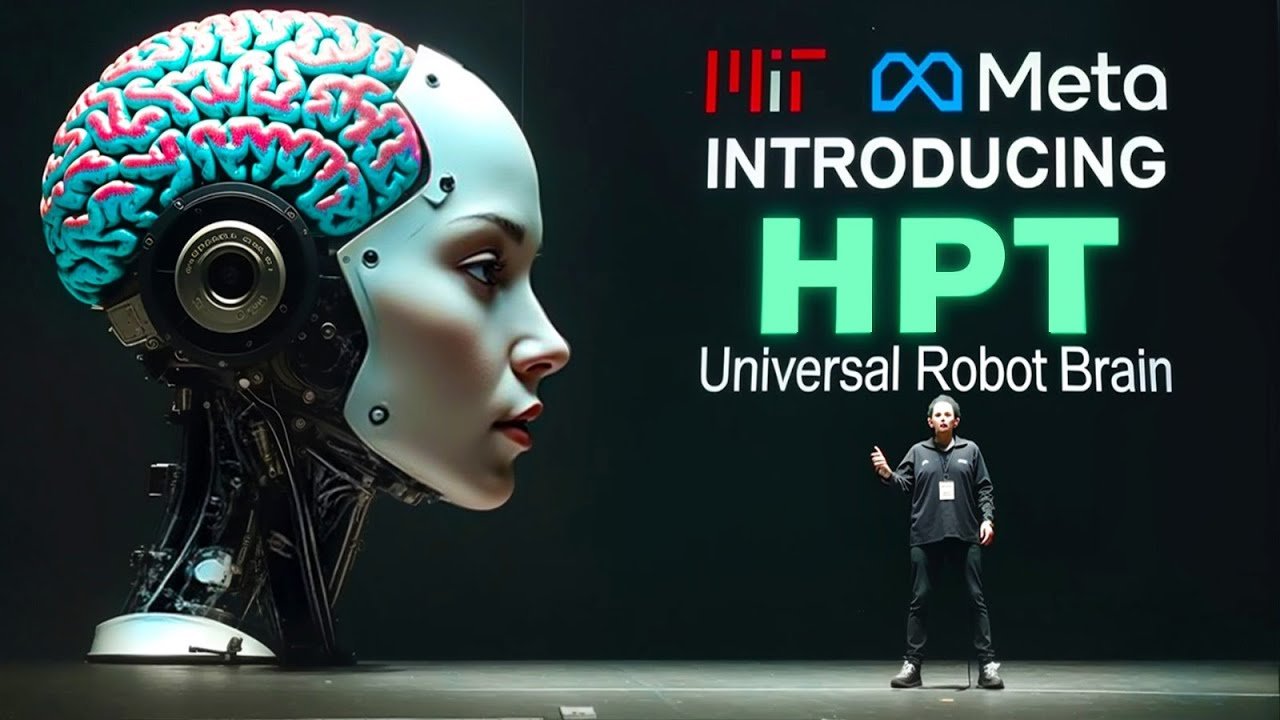META_INTRODUCING_AI_SEARCH ENGINE
October 30, 2024 | by junaid.ansari160@gmail.com


Meta is on a game-changing mission—creating its own search engine to break free from Google aur Microsoft ke grip se. Pehle Meta relied on Google’s Gemini AI model aur Microsoft’s Bing for real-time search info. Lekin ab Meta ne decide kar liya hai ki apne hi search engine ko develop karega, jo directly integrate hoga uske chatbot Meta AI ke saath, jo aaj Instagram, WhatsApp jaise apps pe popular hai. Yaani, ab Meta apne platform pe information flow pe khud ka control chahta hai.
Kyun Banayi Meta Ne Apni Search Engine Strategy?
Google aur Microsoft ke AI models aaj ke time pe super competitive hain—Google ka Gemini AI search ko zyada conversational aur interactive banane pe kaam kar raha hai. Wahi, Microsoft ka Bing ChatGPT ke web browsing ko power karta hai, jo real-time information pull karta hai. Meta ke liye problem yeh hai ki in dono companies se woh ek tarah se compete kar raha hai, aur wahi rivals pe dependent bhi hai for search capabilities.
Meta ka naya search engine real-time responses generate karega—breaking news, stock markets, sports updates—all will be powered directly by Meta’s AI. Yeh independence move sirf freedom ka nahi, balki AI ki strength badhane ka bhi ek way hai. Pichle kuch mahino se Meta ki web crawlers actively poore internet se data scrape kar rahi hain. Ab toh Meta ne Reuters ke saath bhi ek multi-year deal sign kar liya hai, jis se woh U.S.-based users ko authentic aur real-time news provide kar paaye.
Google Maps Ko Bhi Denge Takkar?
Aaj kal Meta ki AI location-based data bhi collect kar rahi hai—the kind jo Google Maps se takkar le sakti hai. Around 8 months se Meta ki backend team silently apna AI search framework develop kar rahi hai, jo eventually ek badi competition ban sakti hai Google aur Bing ke liye. Yeh bada investment hai, lekin long-term control aur privacy kaafi kuch Meta ke favor mein la sakta hai.
Meta’s AI Ka Legal Game Plan – Reuters Partnership Se Hoga Kaam Easy
Google aur Bing jaise competitors ke search engine ke alawa, kuch naye players bhi AI search market mein aa gaye hain—jaise OpenAI ka Search GPT aur Perplexity AI. Lekin in companies pe copyright-related legal troubles bhi hain, kyuki traditional publishers jaise News Corp aur The New York Times sue kar rahe hain, claiming these AI tools unfairly scrape data without compensating properly.
Meta ne yeh samasya tackle karne ke liye Reuters ke saath deal ki hai, jisse woh licensed content legally use kar paayega. Yeh ek smart move hai, kyuki Meta ab AI-generated news pe focus kar raha hai, bina News Tab jaise controversies ka part bane. In-house data aur authorized sources ka use Meta ko third-party dependency se bhi free karega.
Yeh Sab Privacy Ke Liye Kya Matlab Rakhta Hai?
Internet ke zyada interconnected hone ke saath online threats bhi badh rahi hain. Aapke personal data ke liye phishing scams, breaches, aur hackers se risk constantly present hai. Meta jaise giants jitne bhi aage badhte hain, aapke liye data security critical hoti ja rahi hai. Isiliye, VPNs jaise tools aaj kal essential ban gaye hain.
AI Transparency: OSI Ne Meta Ko Badi Challenge Diya
Is sab ke beech, ek aur interesting angle emerge ho raha hai—AI transparency ka. Open Source Initiative (OSI) ne ab ek nai definition set ki hai ki open AI models kaise hone chahiye. Aur Meta ka Llama AI model OSI ke standards pe pura nahi utarta! OSI ka kehna hai ki koi bhi AI tabhi truly open hoga jab uske training data aur codebase ko public kiya jaaye.
Meta ne apna Llama model open-source bola hai, lekin OSI ke naye rules ke mutabik, yeh restricted open source hai. Llama ne commercial use pe kuch limits lagayi hain aur training data bhi disclose nahi kiya, jo OSI ke standards ko violate karta hai. Meta ka kehna hai ki AI models ko fully open karna kaafi risky hai, aur unka stance yeh hai ki complex AI systems pe traditional open-source rules apply nahi ho sakte.
OSI ke executive director Stefano Maffulli ne is clash ko Microsoft ke open-source resistance se compare kiya hai jo 90s me hua tha. Us time Microsoft ne open-source software ko apne business model ke liye threat mana tha—kuch aise hi Meta ab AI ke case me behave kar raha hai.
Hugging Face Aur Other Leaders Ka Reaction
Meta ke transparent hone ke reluctance ko leke Hugging Face ke CEO Clement DeLange ne OSI ke naye standards ko ethical AI development ke liye zaruri bataya hai. Yeh transparency essential hai taaki companies copyright violations ko hide na kar sakein. Stable Diffusion jaise kuch models apna training data reveal karte hain, jo AI industry me ek example set karta hai.
Kya Meta Apne Rules Ko Badlega?
OSI ka yeh naya framework tech industry pe pressure daal raha hai ki woh apne AI models open karein ya justify karein ki kyun woh secrets rakhe hue hain. Yeh AI landscape ke liye ek crucial moment hai, aur Meta ke liye yeh test bhi ban gaya hai—kya woh truly open AI ke principles ko adopt karega ya apne models ko restricted hi rakhega?
Meta ka new search engine aur AI efforts clearly dikhate hain ki woh privacy aur control pe focus kar raha hai. Agar yeh approach successful hoti hai, toh aap expect kar sakte ho ki Meta apni apps jaise Threads aur WhatsApp pe real-time insights ke features introduce karega, aur search ka pura landscape badal dega.
So, AI aur transparency ke iss evolving world me, Meta ki strategies ko dekhte rehna kaafi exciting hone wala hai! 🚀
RELATED POSTS
View all



